The story of Koraga colony of Badiyadukka – Inhabitants who thatch their lives in a simple way
Koraga community of Dakshina Kannada & Udupi districts of Karnataka and the Kasaragod district of Kerala lead a very simple life. These tribal people don’t bind themselves to luxurious life; instead work hard only to fill their stomachs. Koraga colony of Perdala make hampers using twigs and climbers to earn a living.
It’s the story of Perdala Koraga colony of Badiyadukka, Kasaragod where Malayalam of Kerala mixes with Kannada of Karnataka, people don’t dream much about tomorrows. Instead they think only about simple life style and how they can earn a living to stay away from hunger. This Tulu speaking community belongs of 4 Illams (maternal ancestral families) – Baather, Kurumude, Maanadar and Mundethou. In 25 huts, there are more than 150 inhabitants.
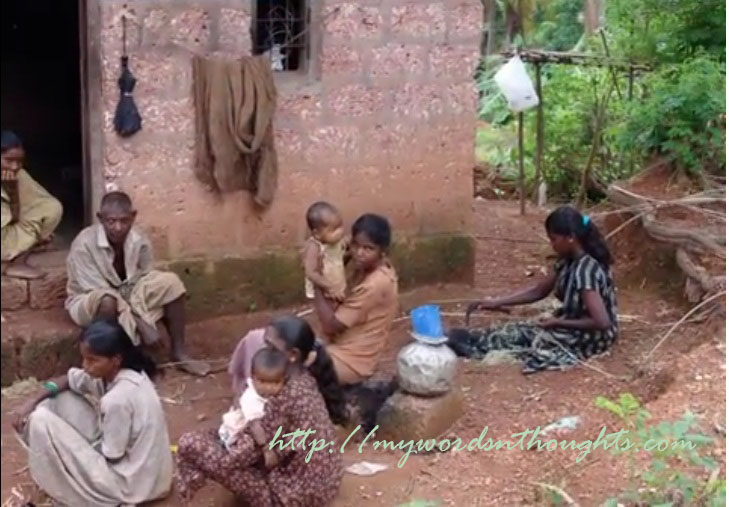
Daily life of Koraga people
They wake up late, and start their daily life having Kanji (rice porridge) as meals. Koraga’s sole source of income is handicrafts made using leaves and twigs, and it’s traditional followed by Koraga people. They make baskets (kutta), winnow (thaduppa/muram), thidupp (to filter rice), Trenching Hoe (Manvetti), Kurya (basket to collect aracanut), Kaikurya (basket to serve rice), mostly used for household. Forest twigs and climbers belonging to bamboo category – Ooyi, Maanthari Valli, Paal Valli & Kari Valli are used to make these handicraft items. They also make knives and also sharpeners to make holes.
They collect raw materials from the forests – Sullya, Kallugundi, Ethadukka etc. They collect twigs that are necessary for today’s activities only. They don’t have the habit to preserve anything for future. A few of the inhabitants have single room houses made of bricks, constructed by government. It’s regarded as a luxurious home among Koragans.
In the mornings they set to work, starting from tarred road that runs through the colony. Women make their kids ready to school, and also prepare baskets on either side of this lane. Usually a family work together to earn a living, and hence they gather at a single place on the road side to make baskets. Yet there is less conversation between the family members while they are engaged in work.
On one side of the colony, there is a 5-acre rubber estate owned by government of Kerala and efforts were taken by government authorities to teach them tapping process. Yet Koragas are not interested to do so, as they receive wages once in a month. There are many members from the colony who go outside to do the same work. Yet most of them traditionally follow basket-making jobs. Most of the senior members of the colony are illiterate.
There is a single-teacher school, and also a special market on Saturdays. Male members may drink liquor on this ‘special’ market day before returning to homes. In most cases, the colony members marry people belonging to same community, residing in same colony. They have a simple marriage, and not use gold for even Mangal Sutra.
Spending a whole day to make two winnows earning 300 rupees a day

If they buy a bundle of Ooyi (raw material used to make winnow) costing 100 rupees, it takes long 10-12 hours to prepare two winnows. In short, they make 2 winnows a day. They sell each winnow for Rs.150. Their food habits are also very simple. Kanji is the staple diet, and on special occasions they buy fish and other expensive items.
A brilliant worker can make up to 8 tidupp a day, and each tidupp earns 20-30 rupees. After collecting sufficient raw materials, most of the families manage to start their work in the afternoons. But it’s a collective process of the members of a family who co-operate each other and work in full swing. If started in the afternoon, a lady may manage to complete one basket, which earns her 100 rupees if sold in any shop of nearby town. As the community doesn’t own the habit to save earnings or anything for future, they spend their daily income for supper and next day. In short, what they earn in a single day is used for next day expenses. In fact many of these poor families have put on the habit to starve themselves during daytime. Some of them even don’t drink water during daytime.
Strainer (Arippa) made using Paal Valli (a type of forest twig) gives only 30 rupees to the worker. Sometimes they earn only 15 rupees from a strainer, and if the shop owner is not satisfied with their work, he may return it also! She needs to collect the raw materials from forest before she starts her work daily. So it has become a routine job for many ladies to go to forests daily to go to forests to collect raw materials, and later start their work and use that income to financially support their families. Unfortunately if strainers are returned, the family may go to sleep empty stomach, as they earn nothing for a long-day of tedious efforts.
Yes, we Keralities boast ourselves to be highly-educated and having high status and standards of living. Most of us don’t even know how to spell the word ‘Poverty’, and what hunger is. In our own Kerala there live many groups of such poor people who don’t dream big to earn high living standards, expensive gifts or luxurious homes or high education, but only three meals a day & to keep themselves away from poverty, yet never prevent themselves from working a full day. What an irony!




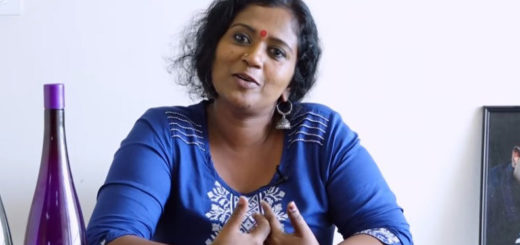




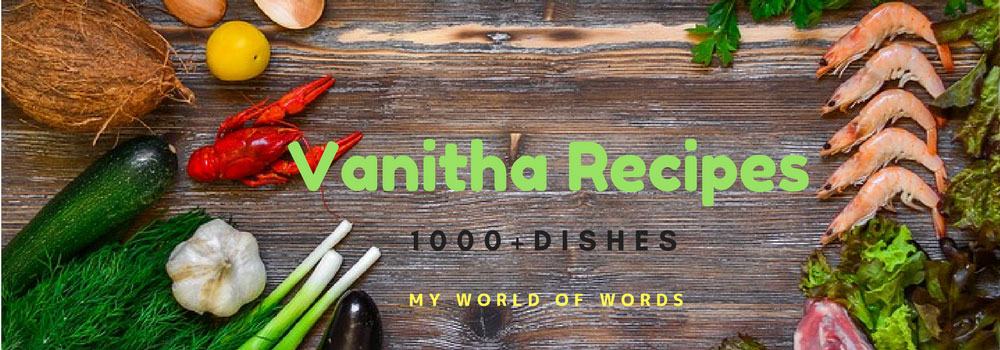
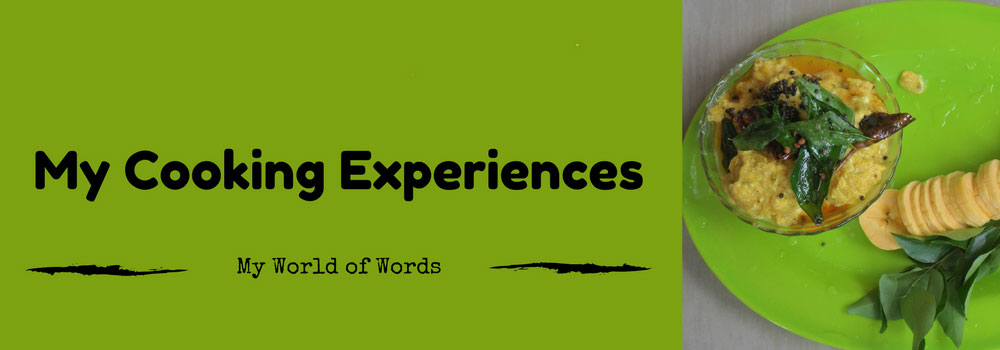


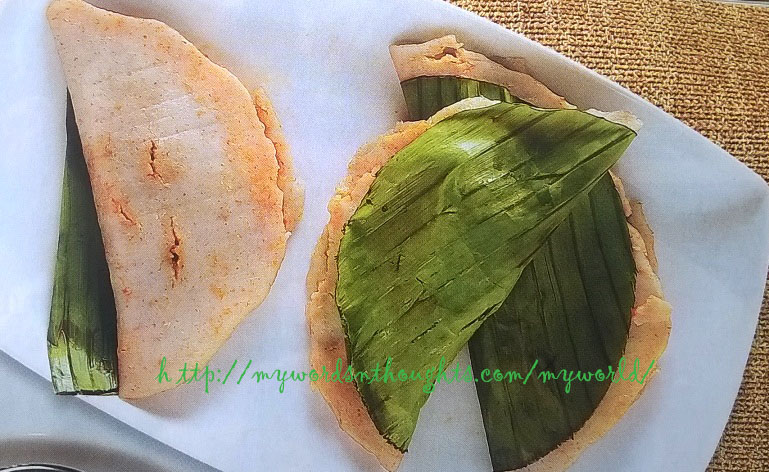
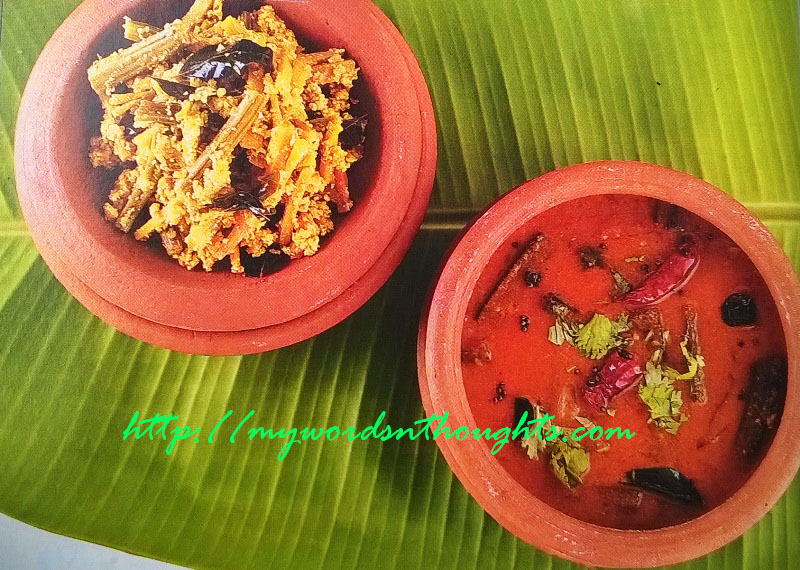
Recent Comments